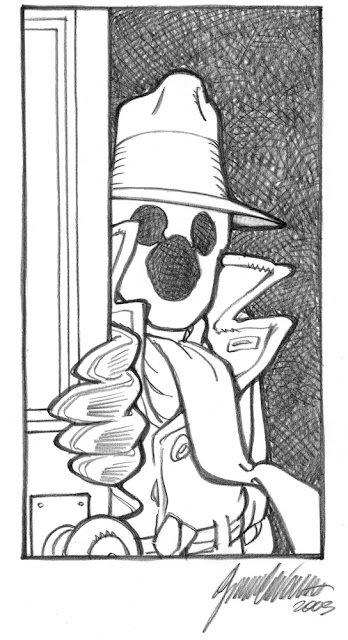 |
| Art by Dan Hillier. |
Alan Moore wrote a new preface for H.P. Lovecraft's The Call of Cthulhu & Other Weird Stories published by The Folio Society and available as both standard and limited edition with amazing illustrations by Dan Hillier.
 |
| Art by Dan Hillier. |
"In a brilliant new preface, written for The Folio Society, author Alan Moore traces his own – and the literary canon’s – troubled relationship with ‘Providence’s paranoiac prophet’ and unearths a writer ‘more subtly insidious and more magnificently visionary… than the one that you remember or anticipate’. [...]
Moore finds Lovecraft at once at odds with and integral to the time in
which he lived: ‘the improbable embodiment of an estranged world in
transition’. Yet, despite his prejudices and parochialisms, he
‘possessed a voice and a perspective both unique in modern literature’."
 |
| Art by Dan Hillier. |




